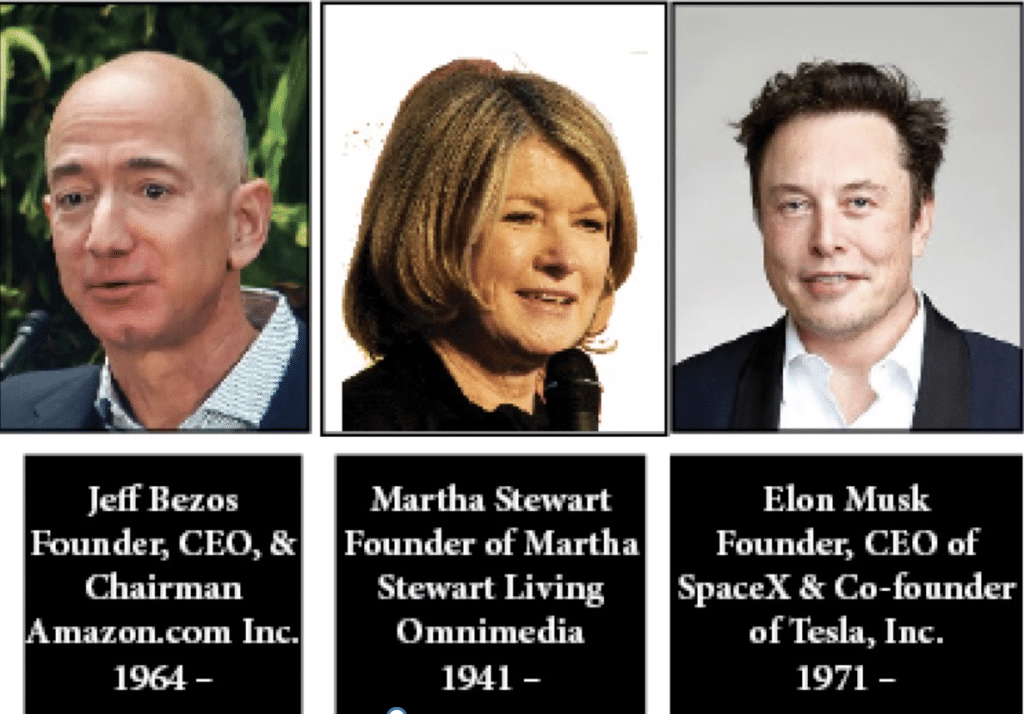
Jessica, this is an interesting question and it’s difficult to answer with any degree of precision because so many groundbreaking technologies or scientific discoveries are made by people of high IQ who also have some degree of social difficulty. In the past few centuries, scientific breakthroughs have come from renegades who “march to the tune of a different drummer” and display social eccentricity in various ways. Nikola Tesla brought us the electric grid based on alternating current, yet lived most of his life in isolation. His former employer, Thomas Edison, was also somewhat eccentric and made many of his early discoveries in the isolation of his laboratory in Menlo Park.
Henry Ford, who pioneered the use of assembly lines in creating a “car for the masses” had mood swings and members of his board referred to him as “mad Henry,” suggesting that the pricing of his cars below cost was an indicator of his insanity. Martha Stewart, Founder of Martha Stewart Living Omnimedia was also said to have significant mood swings. Alan Turing, featured in the movie, “The Imitation Game,” best known for his involvement in cracking the German enigma code in World War II and his prescient vision of AI, was driven to suicide from persecution over his homosexuality.
Visionaries like Steve Jobs, Elon Musk, Jeff Bezos, have all experienced social difficulties, and suffered persecution by bullies during their early years. Yet these pressures during their formative years may have worked the same magic as the intense pressure that turns a lump of carbon into a diamond. Their isolation, may have enabled them to distance themselves from others and venture into uncharted territory, fuelled by the need to express themselves creatively.
Of course, there are some high IQ people of relatively normal social skills, such as Bill Gates, Larry Page and Sergey Brin (Google cofounders) as well as the many research scientists working in labs who contribute significantly to our technologies and our accumulating body of knowledge. Yet even in these labs, we find that some of the greatest contributors attract more than their share of social conflict. William Shockley, who shared the 1956 Nobel Prize in physics for discovery of the transistor effect and James Watson, who shared the Nobel Prize in Physiology or Medicine for discovery of the double helix structure of DNA, were both embroiled in social controversy for their unpopular views.
The social anomalies of highly intelligent people become even more evident when they are gathered together in large groups to achieve a common goal. The Manhattan Project, described in some detail in the book “American Prometheus: The Triumph and Tragedy of J. Robert Oppenheimer” was a large-scale initiative that brought many of the world’s most brilliant scientists together for a common purpose–to develop a nuclear bomb. Many of these scientists were prima donnas and it was Oppenheimer’s remarkable leadership abilities that enabled him to marshal their talents and minimize the social conflicts.
It seems that from Isaac Newton to the present day, a large number of the great breakthroughs have come from people who have high intelligence, a strong ego, an independent habit of mind, and a need for recognition. In some cases this disposition can be attributed to pressures during the formative years, and, indeed, internal turmoil may be a catalyst to productivity. Whatever the cause, the rest of society is the beneficiary of the discoveries and inventions of these people who suffer social difficulties. So it seems there may be some truth in the old adage, “You have to be different to make a difference.”
